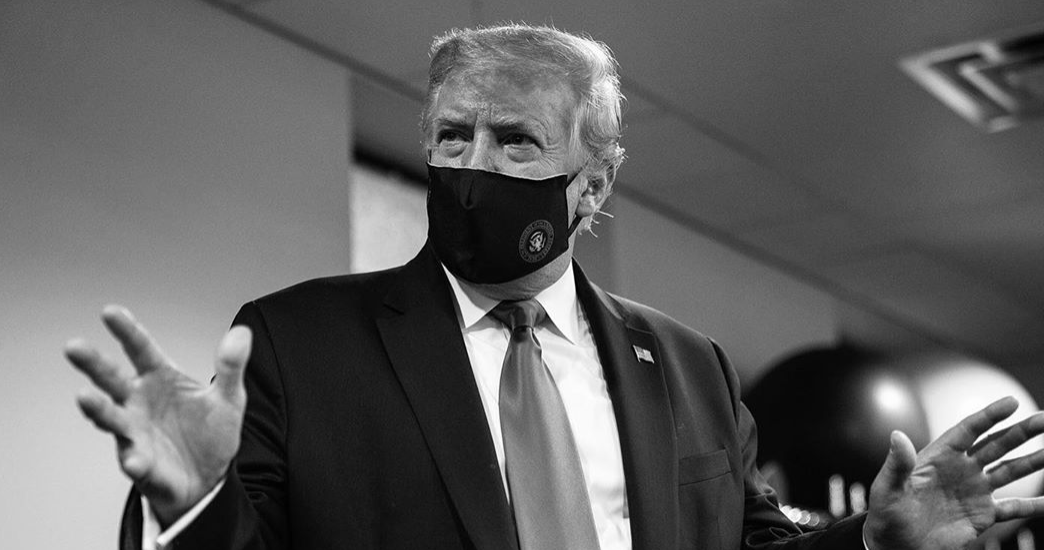Being a boy that wears makeup is a constant cycle of suffocation, self-loathing, and liberation. I’ve faced every kind of comment from my male classmates– “Gross, boys don’t wear makeup!” or “You’re like a knockoff James Charles,” or just blatantly homophobic remarks.
Gender norms have long dictated that hygiene— whether it’s makeup or skincare— is a uniquely feminine thing. In my free time, I manage a skincare blog, and 89% of my reach is women-identifying users. Many cosmetic companies have separate lines of skincare exclusively for men, marketed with darker hues and traditionally masculine fonts.
In a broader framework, our definitions of masculinity have forced certain practices— such as showing emotion, being hygienic, or caring for a community– into binary ideas of what it means to not be a man.
That’s more relevant now than ever. Toxic masculinity isn’t just contributing to blemished and blotchy skin— it’s killing us by playing a part in the COVID-19 pandemic that has devastated upwards of 140,000 lives in the United States alone.
Strict norms of masculinity have long dictated that hygiene is a feminine thing— and in the age of social distancing, masks have evolved into a symbol of hygiene, leading many men to reject mask-wearing for the sake of their “manliness”.
A study from Middlesex University London found that “men less than women intend to wear a face covering,” and that “men more than women agree that wearing a face covering is shameful, not cool, a sign of weakness, and a stigma.” This comes despite the research that has found that masks may significantly reduce the risk of COVID-19 transmission.
In times of crisis, toxic masculinity is an invisible threat that trumps reason and scientific proof. A 2010 study found similar patterns of behavior prevailed during the SARS outbreak, with women more likely than men “to adopt precautionary behaviours to protect against SARS including hand washing, respiratory hygiene, mask wearing.”
When we stigmatize male hygiene, we prompt men to engage in dangerous behavior that perpetuates outdated gender roles. Podcast host Joe Rogan recently said that masks are “for b****hes,” echoing a larger truth about how female hygiene has been weaponized and ridiculed.
As it is believed by Joe Rogan and many other men, masks signify vulnerability— and showing vulnerability is contrary to the tenet of masculinity that says men shouldn’t show weakness. Thus, the male aversion to the face mask is a complex case study into how chauvinism and stoicism eclipse concerns over public health.
In an international context, toxic masculinity has given rise to several political mishandlings of the pandemic. While woman-led countries like New Zealand, led by Prime Minister Jacinda Ardern, have fared significantly better in containing the spread of COVID-19, many male-led countries— US, Brazil, and the UK, for instance— have exposed how toxic masculinity leads to irrational decision making.
It’s not merely by coincidence. Female leaders— Taiwan’s Tsai ing-wen, Germany’s Angela Merkel, New Zealand’s Jacinda Ardern— have reshaped traditional definitions of leadership. Social psychologist Alice Eagly says that “women, who frequently see themselves as more communally oriented, place greater importance on positions that they view as ‘helping people, making the world a better place, getting rid of suffering, and serving humanity.”
https://www.youtube.com/watch?v=CPQcikoCZJ8
In particular, Angela Merkel, the German chancellor, received praise for her empathetic approach in stressing the role of individual responsibility in community safety: “These are not simply abstract numbers in statistics, but that is a father or grandfather, a mother or grandmother, a partner.” New Zealand prime minister Jacinda Ardern communicated a simple message: “Stay home, save lives.”
Taiwan, Germany, and New Zealand, all countries led by women, exemplify the importance of compassion and humility during a public health crisis. These countries now have little to no new cases of COVID-19 daily.
On the other hand, male leaders have generally exhibited signs of toxic masculinity in their handling of the COVID-19 pandemic. U.S President Donald Trump and Brazil President Jair Bolsonaro, specifically, have exhibited a lack of compassion, rejected concrete public health guidance, and attempted to boast of their physical strength.
In July, Jair Bolsonaro mocked guidance to wear facial coverings, commenting that masks were “for fairies.”
Brazil and the United States are now some of the hardest-hit countries in the COVID-19 pandemic.
This isn’t to say that one’s gender is the dominant force in the spread of COVID-19. However, toxic masculinity has distorted our visions of leadership on an international scale, causing a ripple effect in our own communities where we idealize these versions of masculinity.
The endemic nature of toxic masculinity has become a pandemic in and of itself. Its reverberations have been particularly apparent as the COVID-19 pandemic has ravaged communities around the US where men have been disproportionately affected. Toxic masculinity is killing us— literally.
Featured image via Instagram











